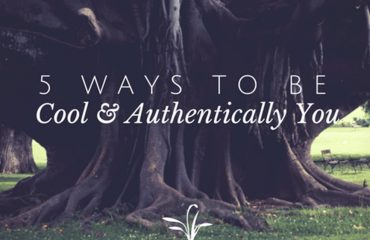When Society Has No Chill, Give Yourself a Mental Break
I never in a million years thought that I would be able to witness the death of a man with the simple touch on my phone. I never thought that when I signed up for Facebook, Twitter, and Instagram that I could scroll down my feeds and come across a video of someone dying.
I’ve never seen anyone die until my coworker showed me the video of the Virginia news anchor and cameraman get murdered during their live broadcast. She found the video on Facebook and had all of us roll over to her desk, but little did we know how violent the video would be.
It messed us up all day, and from that day on I vowed not to watch any videos that hint at murder or death that cross my timeline.
Then I learned that my cousin Kentrill Carraway was killed by the Miami-Dade police in May, and thereafter it was hard to deal with any news of similar deaths caused by police officers especially when it was caught on video.
I know I’m not the only one who wanted to take a mental day off (aka sick day) to deal with my emotions that expanded to a cycle of sadness, disappointment, anger, and fear. Being at work was hard as news about Alton Sterling, Philando Castile, Dallas, Terence Crutcher, Keith Lamont Scott and most recently Deborah Danner filled my text messages and social media feeds. If I didn’t find out myself, my other Black co-workers would ping me or stop by my desk to tell me since my desk became the safe space to let out frustrations.
The news of Deborah Danner rattled Kerry Washington out of her maternity hiatus from social media to share a series of tweets about the continued senseless deaths of Black lives.
“The loss of #DeborahDanner has rattled my core. Not only becuz of painful truth that we must continue to affirm that #BlackLivesMatter,” Washington tweeted. “But also becuz #DeborahDanner was killed in the community where I was raised. Community filled w/people I know & love. So when I #sayhername,” she wrote in another tweet. “My heart aches. For lives lost and for the lives we must protect. For the humanity we must work to illuminate and preserve and affirm. #BLM,” Washington wrote.
I knew that all of this news couldn’t be good for anyone’s mental state. I wondered how my peers around the world were dealing with the stress of hearing the news and coping with it throughout the day.
So what happens when you are constantly fed negative news all day long?
“One of the things that happen when you get overwhelmed with negative information is that our stress levels are increased. We can be more anxious. We can be more depressed. We can be more hopeless because we could be bombarded with the news constantly,” Ledet Muleta, a nurse who has traveled across the African diaspora to tackle the disparities in mental health care, explained.
It was all too much and little did I know that I was experiencing trauma. We experience trauma every day but we are expected to continue to work, smile, nod, and continue to get through the day without breaking.
According to a 2012 study, “black Americans reported experiencing discrimination at significantly higher rates than any other ethnic minority. The study, which surveyed thousands of African-Americans, Hispanics, and Asian-Americans, also found that blacks who perceived discrimination the most were more likely to report symptoms of PTSD. ”
When I think of PTSD, I think of the men and women who serve our military and the trauma they experience in a war zone.
It’s cool to stay woke and all but there’s nothing wrong with a little break from all of the information.
“It’s wonderful of being aware and seeing our problems and finding ways on how to contribute to a solution, but I think being overwhelmed with such information and graphics, and so forth, for a longer period of time, can definitely cause some anxiety and depression and hopelessness,” Muleta warns.
I decided that when I felt the way I felt in May, July, and September that I would unplug. Unplugging doesn’t mean you are not “real” or “down for the cause” because they were silent on their social platforms. Unplugging means that you are giving yourself a break for the sake of your mental health.
We all cope in different ways, but one thing we can agree on is that we have to give ourselves a mental health check. After speaking with psychiatric nurse Ledet Muleta on our ESSENCE.com interview, I spoke with her about ways we can protect our mental health in the times we are living in:
“We need to make sure that we give ourselves enough time to focus on the positive things in life, looking back on history and being aware that life constantly evolved and there will be events and there will be fights and there’s going to be things that we have to fight for. I think that’s more important, is focusing on how to contribute positively to the existing problems we have, and that’s where our energy should be spent, how to solve problems instead of constantly exposing ourselves to violent pictures and information. Definitely, we need to be aware of it, but working on focusing on the solutions will be much better for our mental health as well.”
Other ways to deal with this is to take a walk, call someone for emotional support and take a social media break.
Share with me some of the ways you deal with the trauma.





